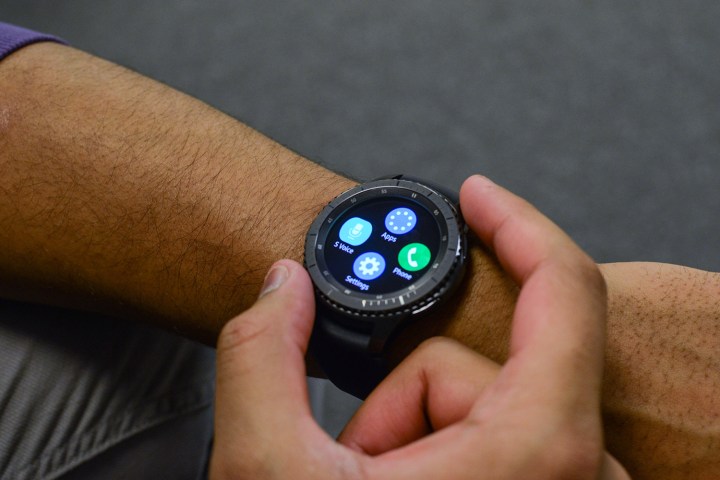
According to a report from market research firm Strategy Analytics, for the first time ever, Tizen has overtaken Android Wear in smartwatch operating system market share. While Android Wear sits in at 18 percent of the market, Tizen now boasts 19 percent. Of course, neither of the two come close to Apple’s 57 percent market share achieved via the Apple Watch’s WatchOS.
The smartwatch era arguably began with the launch of the Apple Watch in 2015, and this marks the first shift in the market since then.
Google can’t be happy about the news, but it does reflect the fact that Samsung has been putting a ton of effort into its smartwatch offerings over the last few years, and they’ve gotten better and better. While the company’s early offerings simply looked like a small smartphone strapped to your wrist, newer Samsung watches, like the Samsung Gear S3, present a stylish and modern take on the classic watch design. Much of that is owed to Samsung embracing a round watch design rather than a rectangular one.
Of course, the Gear S3 has a lot going for it apart from just good design. It’s one of the few smartwatches available that offer LTE connectivity, and it’s a great option for fitness and health tracking. On top of that, you can use the device for Samsung Pay, Samsung’s mobile payment platform aimed at taking on the likes of Android Pay and Apple Pay. Even battery life on the device is good, sitting in at over two days of use — which is great for those who may not be as good about charging their devices every night.
It will be interesting to see how the smartwatch landscape evolves over the next few years.
Editors' Recommendations
- Google just released the first Android 15 beta. Here’s what’s new
- Google Pixel Watch 3: news, rumored price, release date, and more
- Google Pixel 9: news, rumored price, release date, and more
- Samsung just launched a secret Android tablet
- Qualcomm is about to make cheap Android phones better than ever


